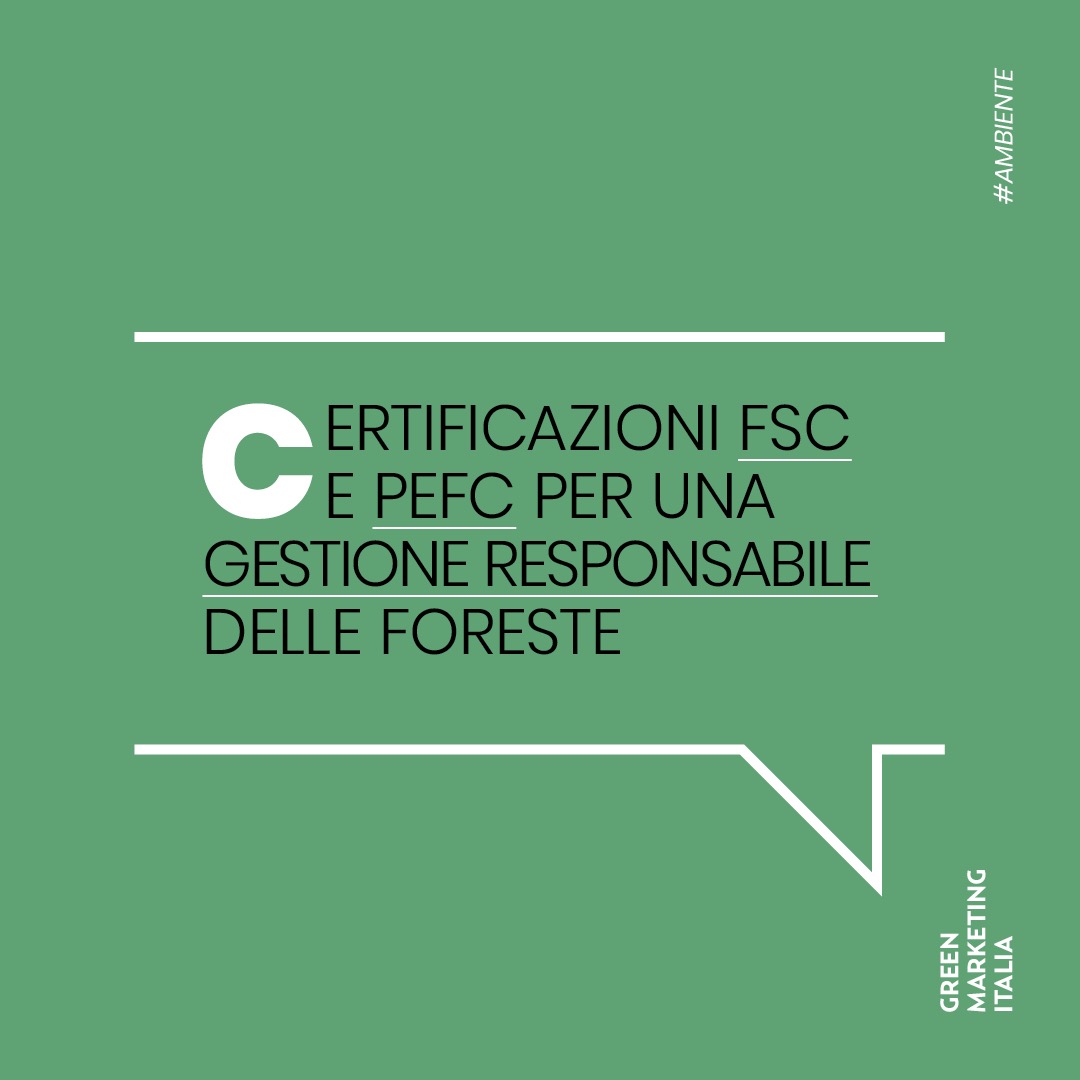The industry of wood and its derivatives, such as paper, has been proving very sensitive to the issue of sustainability for years. In fact, in order to consciously meet with the growing demand for certified material, the sector has decided to define shared standards to guarantee the use of controlled wood from forests. These parameters are used to ensure that final consumers do not buy products made by:
- illegally harvested wood;
- wood cut in violation of traditional and civil rights;
- wood from forests where High Preservation Values are threatened;
- wood coming from forests converted to plantations or other non-forest use;
- wood from genetically modified trees.
Which are the certifications to have?
The most widespread certifications in the furniture and paper sectors are FSC and PEFC. These are two accredited international organisations that have defined different standards and approaches: however, they both share the goal of giving the consumer a product that does not harm the environment and the forests. FSC targets all stakeholders having an impact on forest management, such as companies, consortia and public bodies. Its purpose is to ensure that these forests are used (and not exploited) in compliance with environmental, social and economic standards. Instead, PEFC is based on the traceability of materials from forests and therefore involves furniture industries, sawmills, companies producing wood packaging, paper mills, printers, …
How were these organisations born?
FSC – Forest Stewardship Council was founded in 1993 and today it includes almost 1000 different entities working with the same sustainable development goals as Greenpeace, WWF, Legambiente, Amnesty International, large-scale distributors, companies such as Ikea and Castorama and more. Its fundamental principles include:
- forest management;
- chain of custody, focusing on the traceability of materials;
- controlled wood, contributing to the definition of minimum criteria for the sector.
PEFC – Program for Endorsement of Forest Certification was born as a non-profit voluntary initiative of the private sector. PEFC was created during a series of meetings of forest owners coming from Austria, Finland, France, Germany, Norway and Sweden in 1999.
Which are the differences?
Over the years, both entities have adopted a voluntary and independent certification system, which is now widespread all over the world. However, FSC and PEFC adopt two different standards to issue their certifications:
- FSC defines the performance / result levels that must be achieved in the management of a forest,
- PEFC identifies a set of standards or a minimum level of results.
These criteria have to be considered together with the objectives of each organization and the strategies they adopt to reach them.
Why should enterprises adopt them?
The theme of sustainability becomes more and more important in the panorama of shared social values and corporate commitment towards sustainability.
The global market is increasingly focused on climate change and shared international commitments: that is why FSC and PEFC certifications are both ethical choices and tools to demonstrate social commitment and improve a company reputation.
This topic was discussed in two different meetings in December 2021:
- Gruppo Legno Arredamento and Gruppo Cartario Cartotecnico Grafico promoted the conference “FSC: not just a brand but a marketing lever” organized by Assindustria Veneto Centro. The meeting was held on 13th December at the headquarters of Palazzo Giacomelli (Treviso). Speakers explained the value and importance of FSC certifications to identify shared industry standards.
- The meeting “The Talking Forest“ was held on the web: PEFC presented its certification and its modus operandi, together with some companies that have decided to adopt it. This is the first step towards a new consumption ethic for the benefit of the environment.
A common global commitment
The worldwide attention of states, companies and citizens is increasingly focused on sustainability: a widespread awareness at all levels. For this reason it will be increasingly difficult for a company to operate without defining shared and certified standards to protect the environment.

